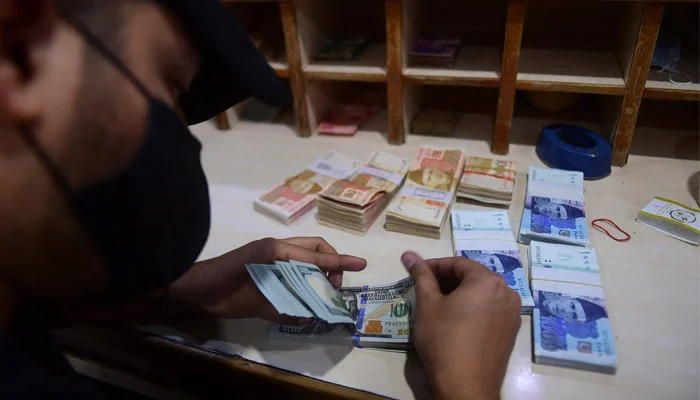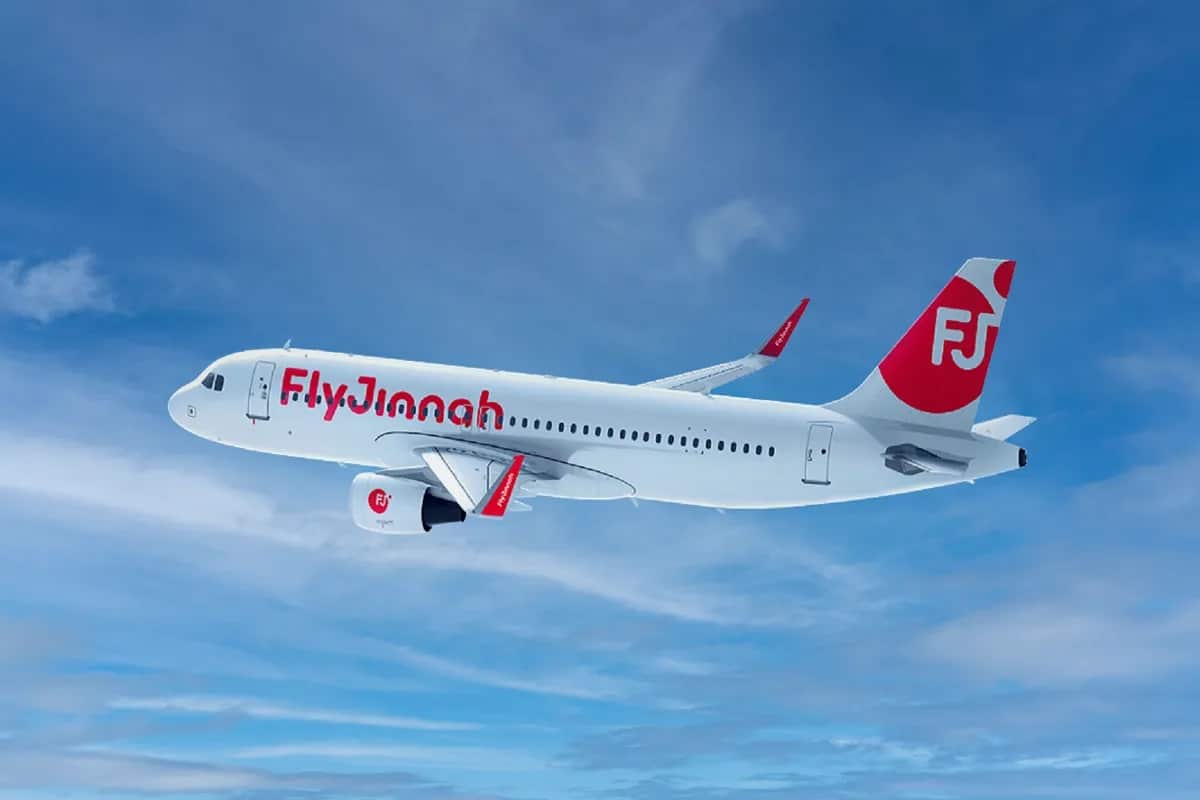KARACHI: The rupee lost its ground against the dollar in the interbank market on Thursday after recovering for two straight sessions as the “optimism surrounding the government and International Monetary Fund (IMF) talks scaled back”.
During intraday trade today, the rupee depreciated by Rs1.17 and was trading at Rs272.17 around 1pm.
The rupee had closed at Rs268.83 on Wednesday.
Capital market expert Saad Ali told Geo.tv that reports regarding the rejection of the circular debt management plan (CDMP) presented by the government to the International Monetary Fund (IMF) had dented the market’s confidence.
Ali said that these reports created doubts about the possibility of a bottleneck in the ongoing government-IMF talks.
An IMF mission is currently in Pakistan holding talks on the ninth review that will continue till February 9 after which a staff-level agreement is expected between the two sides.
Fund rejects circular debt management plan
Earlier today, The News had reported that the IMF has rejected the CDMP presented by the government and asked the authorities to raise the electricity tariff by Rs12.50 per unit in order to restrict the additional subsidy at Rs335 billion for the current fiscal year.
During the second day of technical-level talks, the Washington-based lender termed the revised CDMP as “unrealistic”, which is based on certain wrong assumptions. So the government will have to bring more changes in its policy prescription to restrict the losses of the cash-bleeding power sector.
The IMF and the Finance Ministry will work out a gap on the fiscal front after which different additional taxation measures will be finalised through the upcoming mini-budget.
The revised CDMP envisages an increase in the monster of circular debt to the tune of Rs952 billion for the current fiscal year against an earlier projection of Rs1,526 billion.
The government shared its revised plan with the IMF high-ups on Wednesday, which shows the government required an additional subsidy of Rs675 billion despite raising the power tariff in the range of Rs7 per unit through quarterly tariff adjustment in the first two quarters of 2023 and Rs1.64 for the third quarter from June to August.
“The IMF has opposed the certain basis of the revised CDMP and asks the government to raise the tariff in the range of Rs11 to Rs12.50 per unit, so that the requirement of additional subsidy could be reduced to half from its existing levels of Rs675 billion for the current fiscal year,” sources confided to the publication.
The IMF also raised questions on how the government calculated its additional subsidy requirement figure of Rs675 billion for the current fiscal year. The government has understated the exchange rate for calculating the revised CDMP, so with the existing rate the plan would be changed.
According to the report, the newly developed debt management plan seeks to restrict losses of DISCOs to 16.27% on average during the current fiscal year.
The government has envisaged the target to recover Fuel Price Adjustment (FPA) charges deferred last summer to fetch Rs20 billion into the kitty against estimates of Rs65 billion made on the eve of the last summer.
The markup saving due to IPPs stock payment will bring Rs11 billion while the GST and other taxes on a collection basis will help recover Rs18 billion in the current fiscal year.
The circular debt is estimated to hover around Rs2,113 billion till the end of FY2023, including the amount parked in the Power Holding Limited (PHL), Rs765 billion and Rs1,248 billion payables to power producers and Rs100 billion to fuel suppliers.

 Latest News1 day ago
Latest News1 day ago
 Education2 days ago
Education2 days ago
 Business2 days ago
Business2 days ago
 Business2 days ago
Business2 days ago
 Latest News2 days ago
Latest News2 days ago
 Latest News2 days ago
Latest News2 days ago
 Latest News2 days ago
Latest News2 days ago
 Latest News2 days ago
Latest News2 days ago





















